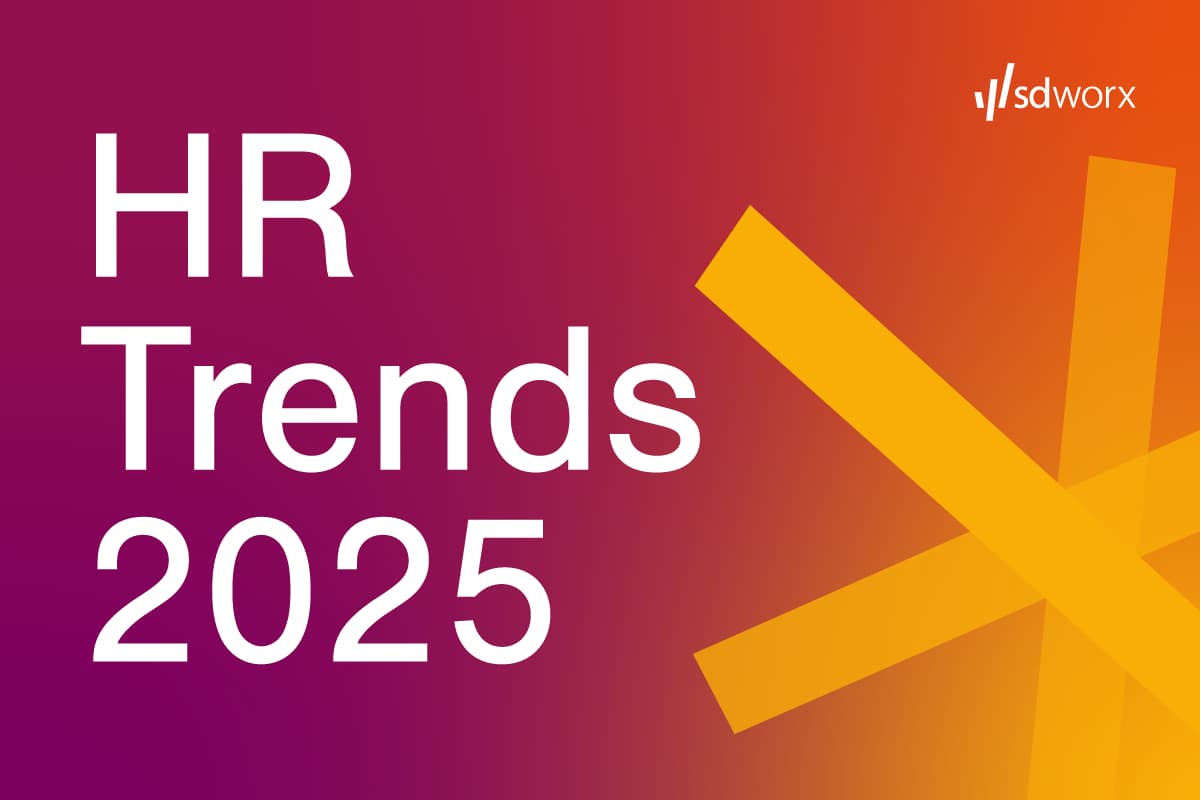Retirement Worries Loom for 60% of Irish Workers -Time to Ease the Transition
According to the latest SD Worx HR & Payroll Pulse survey, 60.4% of Irish workers are worried they won’t have enough money to retire at their planned retirement age - a clear indication that retirement planning is lacking for many. Retirement isn’t just a career milestone; it’s a significant life transition that requires more than simply setting a date. For employers, supporting employees through this stage means prioritising financial preparedness, legal clarity, emotional well-being, and fostering a workplace.
With evolving legislation and changing financial landscapes, organisations must ensure that they are providing the right resources and guidance to help employees retire with confidence. By taking a proactive approach, businesses can foster a more supportive, inclusive workplace while ensuring a seamless transition for valued team members reaching the close of their time in employment
Understanding the Employment Bill 2024.
Raditionally, many employment contracts in Ireland have included a mandatory retirement age- - often 65. However, as people live and work longer, flexibility in retirement planning is becoming essential. The Employment (Restriction of Certain Mandatory Retirement Ages) Bill aims to address these evolving needs by allowing employees more control over their retirement timeline.
Key Objectives of the Bill:
- Empower employees to continue working beyond traditional retirement ages if they choose.
- Encourage organisations to take a fair and structured approach to retirement policies.
- Provide legal clarity for both employers and employees.
- Support a more inclusive, age-diverse workforce.
This legislation reflects the growing need for workplaces to adapt to a longer working life. Many employees, whether for financial reasons or personal fulfilment, wish to remain in employment beyond the previously standard retirement age. Employers must adapt by reviewing existing contracts, ensuring retirement policies align with legal changes, and fostering an environment where employees have the autonomy to decide when they are ready to retire.
Relevant External Resource: Changes to retirement ages on the way: The Employment (Contractual Retirement Ages) Bill 2025 is published - Arthur Cox LLP
What Employers Need to Do
- Review and Update Policies: Ensure existing employment contracts and policies align with the evolving legislation, eliminating rigid retirement ages where possible, and keeping in line with the evolving policies in your workplace!
- Engage in Transparent Communication: Open discussions about retirement planning should become the norm, ensuring employees feel supported in their decision-making process. Making your HR team experts in the field of retirement planning should become paramount.
- Offer Flexible Work Arrangements: Some employees may want to transition into retirement gradually, reducing working hours instead of an abrupt exit.
- Provide Legal and Financial Guidance: Employees may need help navigating their options, so offering legal and financial advisory resources can help them make informed decisions.
A proactive approach to these changes will not only ensure compliance with the law but will also help organisations retain experienced talent and foster a workplace culture that values employees at all career stages.
Helping Employees Plan Financially
A secure financial future is one of the most important aspects of retirement. Employers can play a key role by providing clear pension guidance and ensuring employees understand their options.
State Pension (Contributory) Rates 2024
| Age of Recipient | Weekly Pension Amount |
| Under 80 | €277.30 |
| 80 and over | €287.30 |
To qualify for the full State Pension, employees must meet PRSI contribution requirements. Many individuals supplement this with private or occupational pensions, making it essential for organisations to educate their workforce on available options and tax implications of pension:
Relevant External Resource: Taxation of pensions
Additional Pension Support Options
- Occupational Pension Schemes – Employer-sponsored pension plans providing extra retirement income.
- Personal Retirement Savings Accounts (PRSAs) – Flexible, tax-efficient savings plans.
- Additional Voluntary Contributions (AVCs) – Extra contributions to enhance future retirement benefits.
The Role of Financial Well-being in Retirement Planning
Retirement planning goes beyond understanding pensions—it also involves ensuring financial well-being throughout an employee’s career. Employers can take proactive steps to help employees achieve long-term financial security by:
- Providing Financial Literacy Programs: Hosting workshops and offering resources to educate employees on budgeting, investments, and debt management can help them make informed financial decisions leading up to retirement.
- Offering One-on-One Financial Planning Sessions: Giving employees access to professional financial advisors who can provide tailored guidance on savings strategies, pension contributions, and retirement goals.
- Encouraging Early Pension Planning: The earlier employees start planning, the better prepared they will be for retirement. Employers can promote early engagement in pension schemes and financial planning initiatives. The Retirement Planning Council of Ireland can offer your employees guidance.
- Facilitating Access to Savings and Investment Programs: Providing employees with the opportunity to participate in employer-supported savings schemes or investment plans can help them build additional retirement income.
- Addressing Post-Retirement Financial Well-being: Offering post-retirement financial resources, such as guidance on managing retirement savings, healthcare costs, and lifestyle budgeting, ensures that employees continue to thrive financially after they exit the workforce.
By integrating financial well-being initiatives into the workplace, employers can empower their workforce to make sound financial decisions, reduce stress about retirement, and enhance overall job satisfaction and productivity.
Related Blog: Salary Transparency and Financial Well-being: A Must for Modern Workplaces
Creating a Retirement-Friendly Workplace
Retirement isn’t just about financial security; it’s about transitioning into a new stage of life with confidence and clarity. Employers can foster a positive retirement experience by:
- Encouraging open conversations about retirement plans and options. Employees should feel comfortable discussing their retirement goals with HR and management, knowing they will receive support and guidance tailored to their needs.
- Offering phased retirement opportunities to help employees gradually transition out of the workforce. This can involve part-time work, consulting roles, or mentorship opportunities where retiring employees share their expertise with younger colleagues in need of practical advice.
- Providing access to financial, well-being, and career transition support services. Employers can offer financial advisory sessions, retirement planning workshops, and well-being programs to help employees navigate the emotional and logistical aspects of retirement.
- Recognising employees' contributions and celebrating their achievements. Retirement is a major milestone, and acknowledging employees' dedication and hard work through farewell events, commemorative awards, or personalised messages can make the transition more meaningful and positive.
- Creating a culture of inclusivity for older employees by ensuring they feel valued and engaged in the workplace until they are ready to retire. Encouraging age diversity within teams and providing opportunities for professional development can make a significant difference in how employees approach retirement.
A well-structured retirement process benefits both employees and the organisation, fostering a positive and age-inclusive workplace culture. By implementing supportive policies and fostering a workplace environment that values experience and legacy, businesses can ensure a smoother transition for employees approaching retirement.
How SD Worx HR Solutions Can Simplify Retirement Planning
Retirement planning can be complex, but SD Worx HR solutions make it easier by providing HR management with tools to support their employees through every stage of their career from hire to retire. With intelligent automation, personalised insights, and compliance management, SD Worx can support HR professional to support smooth transitions to retirement.
The Benefits of Using SD Worx HR Solutions:
- Improved Employee Experience: Employees feel more in control of their retirement plans with self-service tools and personalised guidance.
- Enhanced Compliance & Risk Management: Automated compliance tracking reduces legal risks and ensures alignment with Irish employment laws.
- Seamless Workforce Planning: Businesses can better manage workforce transitions, succession planning, and phased retirements.
- Data-Driven Decision-Making: Insights and analytics help HR teams anticipate retirement trends and adjust workforce strategies accordingly.
- Time & Cost Efficiency: Automation reduces administrative burdens, allowing HR teams to focus on strategic employee engagement and support.
By leveraging SD Worx HR solutions, businesses can streamline retirement planning, provide employees with the tools they need for financial security, and foster an age-inclusive workplace where retirement is a well-supported and celebrated transition.
Retirement marks the end of one chapter and the beginning of another. With the right policies, financial guidance, and personal support, employers can help their employees transition into retirement with ease and confidence. A well-planned, flexible approach benefits not just retiring employees but the entire organisation, fostering a workplace culture that values every stage of a career journey.

